 “A wide music industry grouping representing the independent record industry, composers and songwriters, musicians and performers, music managers, music publishers and their collecting societies hosted a crucial round table meeting yesterday, chaired by the Smith Institute, to debate the creation of a progressive and innovative copyright framework that is fit for purpose in the digital age.”
“A wide music industry grouping representing the independent record industry, composers and songwriters, musicians and performers, music managers, music publishers and their collecting societies hosted a crucial round table meeting yesterday, chaired by the Smith Institute, to debate the creation of a progressive and innovative copyright framework that is fit for purpose in the digital age.”
Which is the official line anyway, whether it has any relevance to the real world is a mute point and potentially completely misunderstood.
After the “industry” round table, a press conference was held, with the following representatives: –
Adam Singer (Chief Executive MCPS PRS Alliance) (below right), Alison Wenham (Chairman, Chief Executive, AIM) Dave Rowntree (Drummer with Blur + Ailerons) Andy Heath (Managing Director 4AD Music, British Music Rights Board) David Ferguson (Chairman, British Academy of Composers & Songwriters) Doug D’Arcy (AIM Board, Managing Director Songlines) Horace Trubridge (Assistant General Secretary Musicians Union) Jazz Summers (Chairman Music Managers Forum, CoFounder Big Life Management)
A value recognition right
This is the whole premise of their argument. Anyone involved in the distribution of content (whether they are aware of it or not) should be considered part of the value chain and therefore subject to licensing constraints.
 The Copyright Levy laws were designed for analogue, but digital changes everything, control has passed to other players (ISPs, mobile operators, iPods etc) rather than traditional channels with physical controls. So the intent is to license these distributors. This will of course require working with them, understanding their business models etc.
The Copyright Levy laws were designed for analogue, but digital changes everything, control has passed to other players (ISPs, mobile operators, iPods etc) rather than traditional channels with physical controls. So the intent is to license these distributors. This will of course require working with them, understanding their business models etc.
It’s all about a mechanism for creating a better working relationship with distribution channels.
The groups are already lobbying government to change the law so that these new distribution channels will now be considered actual distributors as the content is adding value to the distributor, therefore the industry should get a cut of the added value.
It’s estimated that £0.5 billion has been lost in license revenues due to illegal sharing. Current copyright law actually forbids copying a CD to iPod (or any other kind of digital copy).
They agree there is more work to do and they’ll publish the report in September including transcripts of discussions held yesterday morning.
 These issues don’t just apply to the music industry and they’re gaining traction from other content industries and internationally.
These issues don’t just apply to the music industry and they’re gaining traction from other content industries and internationally.
Statistics are everything
One of the major stats used to justify their argument is that 60% of Internet traffic is file sharing, initially it was stated that this was “music sharing”, but this was changed to general sharing. There is a lot of P2P traffic and though a lot of it is probably music sharing, services such as Skype and other legal P2P services will also make up a good percentage.
They then utilise these figures that as so much traffic is P2P, users are signing up for broadband because of file sharing i.e. P2P is adding value and therefore attracting users and they want a cut of the added value.
It’s actually probably the other way around, people sign up for broadband for many reasons. Nowadays, because it’s given away free as a bundle with other services, but also because it’s cheaper than (or near enough the same price as) dial-up. Customers then find P2P is easy and therefore use it.
The margins on broadband are extremely low, Carphone Warehouse (CW) is actually losing money on every customer they sign-up, EVERY month (this will eventually change when they install their own kit in BT’s exchanges). They are buying market share. P2P doesn’t help their situation at all, they’d much rather not have users eating up all CW’s bandwidth which costs them lots of money.
 Bulldog have just pulled out of the retail market and have decided to concentrate on the wholesale side and compete with BT Wholesale. Though part of this is that their parent Cable and Wireless (C&W) are trying to consolidate to fewer larger customers (i.e. broadband suppliers who then have lots of customers), part of the problem with having retail customers is you have to constantly upgrade your network to meet their growing bandwidth needs, and this gets very expensive very quickly.
Bulldog have just pulled out of the retail market and have decided to concentrate on the wholesale side and compete with BT Wholesale. Though part of this is that their parent Cable and Wireless (C&W) are trying to consolidate to fewer larger customers (i.e. broadband suppliers who then have lots of customers), part of the problem with having retail customers is you have to constantly upgrade your network to meet their growing bandwidth needs, and this gets very expensive very quickly.
With a wholesale customer base, they only need to provide a certain amount of bandwidth per customer to the retailer, who then has to provide connectivity elsewhere and meet the growing bandwidth requirement pains.
Retailers using BT Wholesale have very small margins, equating to maybe a few pounds per month to provide all the back-end services that customers demand.
Broadband to all
Broadband is becoming a commodity and it’s the value added services that will generate revenue, and what are the value add services? Licensed content, initially likely to be TV (as in IPTV), but other services will follow.
In France broadband is available for 18 Euros per month for 24Mb/s ADSL2+, this includes Internet access, basic TV channels and all you can eat national French dialing. Yes, the companies support P2P, not because they want to, but because customers demand it. The basic service will just about pay for itself, or even make a loss, but then once customers have the broadband in place, they buy premium content and that’s where revenue comes in.
 This model is coming to the UK, BT’s broadband hub service is their first foray into an IP connected world, BT Vision (IPTV) is coming.
This model is coming to the UK, BT’s broadband hub service is their first foray into an IP connected world, BT Vision (IPTV) is coming.
Stealth Tax
The music industry has gotten very bad press for suing consumers, so now they are trying to make the problem go away by taxing (licensing) the distribution channels and hiding the effect from users themselves.
The distribution channels would rather the traffic wasn’t on their networks in the first place, but are being put in a position (which could be driven through by law) where they have to pay for their users’ (mis)use of the network where margins are incredibly low to start with.
This means the channels will have to put up pricing (which means users notice) or absorb the costs themselves and they make even lower margins.
The music industry needs to rapidly have sensible discussions with the ISPs and other distribution channels to sort out the real economics of distribution or it’s likely a stealth tax will come into force which could kill the distribution industry in doing so, which wouldn’t benefit anybody.
 Travellers needing to keep connected might like the cut of the jib of Trendnet’s handy new USB wotsit. Regaling under the lengthy name of the ‘Trendnet HotFlash 802.11g Wireless & 512MB Flash Memory Combo USB Adapter with HotSpot Detector,’ this cheeky little puppy wedges in a ton of functionality into a memory stick sized unit.
Travellers needing to keep connected might like the cut of the jib of Trendnet’s handy new USB wotsit. Regaling under the lengthy name of the ‘Trendnet HotFlash 802.11g Wireless & 512MB Flash Memory Combo USB Adapter with HotSpot Detector,’ this cheeky little puppy wedges in a ton of functionality into a memory stick sized unit.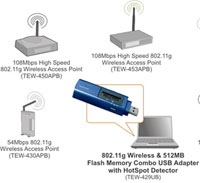 Powered by a built-in rechargeable Li-on battery (which charges up when connected to a USB port), the specs claim a wireless working range of 35-100 meters indoors and 100-300 meters outdoors.
Powered by a built-in rechargeable Li-on battery (which charges up when connected to a USB port), the specs claim a wireless working range of 35-100 meters indoors and 100-300 meters outdoors. Movielink, a service which delivers films over the Internet, will soon be offering the ability to burn the downloaded films to DVD, complete with DRM protection, reports ZDNet.
Movielink, a service which delivers films over the Internet, will soon be offering the ability to burn the downloaded films to DVD, complete with DRM protection, reports ZDNet. The online video sharing Web site YouTube, has, in the space of just a year, become the leading online video resource with up to 100 million videos being watched every day.
The online video sharing Web site YouTube, has, in the space of just a year, become the leading online video resource with up to 100 million videos being watched every day. When we checked out the homepage (only in the interests of research, of course), there was a “Chipotle Burrito Parody,” a short clip of a “Giant Humbolt Squid,” “Cat Robot” and the always popular, “Zidane Headbutt Attack” for our viewing pleasure.
When we checked out the homepage (only in the interests of research, of course), there was a “Chipotle Burrito Parody,” a short clip of a “Giant Humbolt Squid,” “Cat Robot” and the always popular, “Zidane Headbutt Attack” for our viewing pleasure. Curiously, the company says that it is “still working” on developing advertising and other revenue generating services to support the business.
Curiously, the company says that it is “still working” on developing advertising and other revenue generating services to support the business.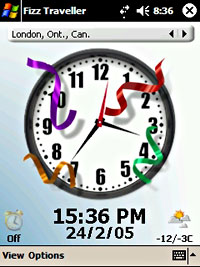 Wedging its foot firmly into the territory currently ruled by rival application World Mate, Fizz Traveller for Pocket PC is a mobile travel companion, compatible with Windows Mobile 2003/2005 and Smartphone editions.
Wedging its foot firmly into the territory currently ruled by rival application World Mate, Fizz Traveller for Pocket PC is a mobile travel companion, compatible with Windows Mobile 2003/2005 and Smartphone editions.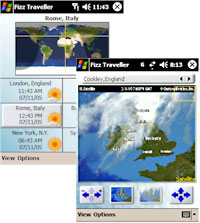 Great if you like that kind of thing, of course, but we’d be happier with just one clean, crisp and professional interface than a load of bubbly, baubly spinning things.
Great if you like that kind of thing, of course, but we’d be happier with just one clean, crisp and professional interface than a load of bubbly, baubly spinning things. Sadly, you couldn’t zoom into the map so it wasn’t the greatest of travel aids.
Sadly, you couldn’t zoom into the map so it wasn’t the greatest of travel aids.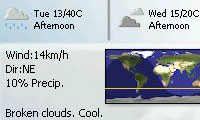 We liked the weather maps and there’s no denying that the interface has been buffed and polished up to a very high standard with lots of options for folks who like to customise their app.
We liked the weather maps and there’s no denying that the interface has been buffed and polished up to a very high standard with lots of options for folks who like to customise their app. The planned buy out of the satellite interests of BT Media and Broadcast, the division within UK giant, British Telecom, that operates ‘business to business’ broadcasting industry interests, has fallen at the final fence.
The planned buy out of the satellite interests of BT Media and Broadcast, the division within UK giant, British Telecom, that operates ‘business to business’ broadcasting industry interests, has fallen at the final fence. BT like other large telco’s is finding itself with more Satellite capacity than it can usefully manage, remains committed to a sale and is now considering the long term future of some of its’ other major earth stations.
BT like other large telco’s is finding itself with more Satellite capacity than it can usefully manage, remains committed to a sale and is now considering the long term future of some of its’ other major earth stations.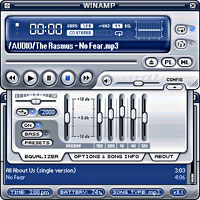 Here’s the third in Mike’s three part review of why the Palm Treo rocks his boat.
Here’s the third in Mike’s three part review of why the Palm Treo rocks his boat. Word!
Word!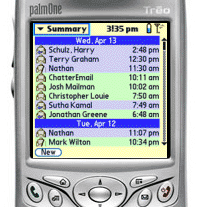 It’s the same story with SMS, with the built in text messaging interface on the Palm remaining streets ahead of its Pocket PC rivals, with the superb auto-threading conversations making it easy to keep track of text conversations. It really is a delight to use.
It’s the same story with SMS, with the built in text messaging interface on the Palm remaining streets ahead of its Pocket PC rivals, with the superb auto-threading conversations making it easy to keep track of text conversations. It really is a delight to use.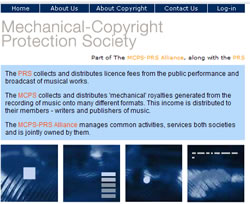 “A wide music industry grouping representing the independent record industry, composers and songwriters, musicians and performers, music managers, music publishers and their collecting societies hosted a crucial round table meeting yesterday, chaired by the Smith Institute, to debate the creation of a progressive and innovative copyright framework that is fit for purpose in the digital age.”
“A wide music industry grouping representing the independent record industry, composers and songwriters, musicians and performers, music managers, music publishers and their collecting societies hosted a crucial round table meeting yesterday, chaired by the Smith Institute, to debate the creation of a progressive and innovative copyright framework that is fit for purpose in the digital age.” The Copyright Levy laws were designed for analogue, but digital changes everything, control has passed to other players (ISPs, mobile operators, iPods etc) rather than traditional channels with physical controls. So the intent is to license these distributors. This will of course require working with them, understanding their business models etc.
The Copyright Levy laws were designed for analogue, but digital changes everything, control has passed to other players (ISPs, mobile operators, iPods etc) rather than traditional channels with physical controls. So the intent is to license these distributors. This will of course require working with them, understanding their business models etc. These issues don’t just apply to the music industry and they’re gaining traction from other content industries and internationally.
These issues don’t just apply to the music industry and they’re gaining traction from other content industries and internationally. Bulldog have just pulled out of the retail market and have decided to concentrate on the wholesale side and compete with BT Wholesale. Though part of this is that their parent Cable and Wireless (C&W) are trying to consolidate to fewer larger customers (i.e. broadband suppliers who then have lots of customers), part of the problem with having retail customers is you have to constantly upgrade your network to meet their growing bandwidth needs, and this gets very expensive very quickly.
Bulldog have just pulled out of the retail market and have decided to concentrate on the wholesale side and compete with BT Wholesale. Though part of this is that their parent Cable and Wireless (C&W) are trying to consolidate to fewer larger customers (i.e. broadband suppliers who then have lots of customers), part of the problem with having retail customers is you have to constantly upgrade your network to meet their growing bandwidth needs, and this gets very expensive very quickly. This model is coming to the UK, BT’s broadband hub service is their first foray into an IP connected world, BT Vision (IPTV) is coming.
This model is coming to the UK, BT’s broadband hub service is their first foray into an IP connected world, BT Vision (IPTV) is coming. Anyone who enjoyed Mario Kart on the Nintendo SNES back in the 90s will love MicroQuad by Viex Games.
Anyone who enjoyed Mario Kart on the Nintendo SNES back in the 90s will love MicroQuad by Viex Games. At the beginning of each game you can select any one of six different bikes, each offering different strengths and weaknesses (road, off road and grip).
At the beginning of each game you can select any one of six different bikes, each offering different strengths and weaknesses (road, off road and grip). The game also offers an internet high score competition, a Bluetooth multiplayer option and a ‘Quick Race’ option if you fancy a quick blast around the tracks.
The game also offers an internet high score competition, a Bluetooth multiplayer option and a ‘Quick Race’ option if you fancy a quick blast around the tracks. The BPI continued its policy of clamping down on illegal file sharing this week, when it contacted UK ISPs Cable and Wireless and Tiscali with requests to suspend 59 accounts.
The BPI continued its policy of clamping down on illegal file sharing this week, when it contacted UK ISPs Cable and Wireless and Tiscali with requests to suspend 59 accounts. In a statement on 12th July, the BPI stated “Early responses from both companies suggest that they will suspend accounts which have clearly been used for illegal filesharing” and indicated that it could supply detailed evidence on the other 16 Tiscali addresses. In an interview on More Four News Tiscali spokesman Richard Ayres said Tiscali’s message to the record industry is “Come to us, give us the details and we’ll absolutely work with you.” Which would seem to be in contradiction of Tiscali’s own letter, which also stated that “Tiscali does not intend to require its customers to enter into the undertakings proposed by you and, in any event, our initial view is that they are more restrictive than is reasonable or necessary.”
In a statement on 12th July, the BPI stated “Early responses from both companies suggest that they will suspend accounts which have clearly been used for illegal filesharing” and indicated that it could supply detailed evidence on the other 16 Tiscali addresses. In an interview on More Four News Tiscali spokesman Richard Ayres said Tiscali’s message to the record industry is “Come to us, give us the details and we’ll absolutely work with you.” Which would seem to be in contradiction of Tiscali’s own letter, which also stated that “Tiscali does not intend to require its customers to enter into the undertakings proposed by you and, in any event, our initial view is that they are more restrictive than is reasonable or necessary.” Coincidentally, the BPI action comes at the same time that the (US based)
Coincidentally, the BPI action comes at the same time that the (US based)  Microsoft have been fined by the European Commission for failing to comply with an anti-competitive ruling.
Microsoft have been fined by the European Commission for failing to comply with an anti-competitive ruling.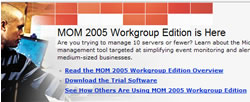 Competition Commissioner Neelie Kroes was quoted by Reuters as saying, “Microsoft has still not put an end to its illegal conduct. I have no alternative but to levy penalty payments for this continued non-compliance. No company is above the law.”
Competition Commissioner Neelie Kroes was quoted by Reuters as saying, “Microsoft has still not put an end to its illegal conduct. I have no alternative but to levy penalty payments for this continued non-compliance. No company is above the law.”